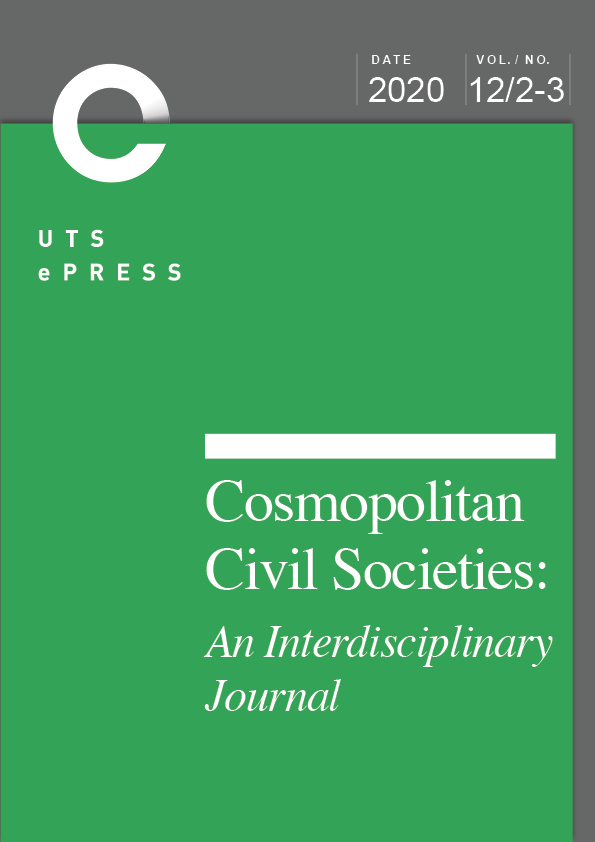Meaningful Evaluation: a holistic and systemic approach to understanding and assessing outcomes
Main Article Content
Abstract
The concept and practice of Social Impact and Social Impact assessment has developed and matured over the last decade. Despite this growth, confusion still exists with respect to definitions of social impact as well as which tools and frameworks are most appropriate. Central to the concept and practice of social impact is a focus on outcomes. This paper argues that a discernible albeit problematic pattern and approach has emerged in outcomes measurement within the social impact field. After briefly reviewing some of the key problems with how outcomes measurement is practised, it presents some recent approaches from the evaluation field that attempt to address some of these concerns before introducing a new approach to understanding and evaluating outcomes – Meaningful Evaluation (ME). A pilot Meaningful Evaluation of volunteer ethics teachers in the Primary Ethics program in NSW is used to illustrate the approach. ME combines the Map of Meaning (MoM) with insights from next generation evaluation approaches to understand and assess outcomes. Informed by appreciative inquiry perspectives, it provides a means to bridge the divide between positivist and interpretivist approaches in evaluation. Key to ME is the assumption that it is more likely that immediate outcomes lead to medium and long-term outcomes (changes in behaviour) that are sustainable and lead to impact if participants experience program interventions as ‘meaningful’. Meaning is an important internal outcome that is essential if longer-term external outcomes are to occur. It also shifts the focus to capture unintended outcomes, key to developing holistic and systemic rather than linear and mechanistic Theories of Change.
Article Details
Issue
Section
Authors who submit articles to this journal from 31st March 2014 for publication, agree to the following terms:
a) Authors retain copyright and grant the journal right of first publication with the work simultaneously licensed under a Creative Commons Attribution License that allows others to share and adapt the work with an acknowledgement of the work's authorship and initial publication in this journal.
b) Authors are able to enter into separate, additional contractual arrangements for the non-exclusive distribution of the journal's published version of the work (e.g., post it to an institutional repository or publish it in a book), with an acknowledgement of its initial publication in this journal.
c) Authors are permitted and encouraged to post their work online (e.g., in institutional repositories or on their website) prior to and during the submission process, as it can lead to productive exchanges, as well as earlier and greater citation of published work (See The Open Access Citation Advantage Service). Where authors include such a work in an institutional repository or on their website (ie. a copy of a work which has been published in a UTS ePRESS journal, or a pre-print or post-print version of that work), we request that they include a statement that acknowledges the UTS ePRESS publication including the name of the journal, the volume number and a web-link to the journal item.
d) Authors should be aware that the Creative Commons Attribution (CC-BY) License permits readers to share (copy and redistribute the work in any medium or format) and adapt (remix, transform, and build upon the work) for any purpose, even commercially, provided they also give appropriate credit to the work, provide a link to the license, and indicate if changes were made. They may do these things in any reasonable manner, but not in any way that suggests you or your publisher endorses their use.
For Volume 5 No 3 (2013) and before, the following copyright applied:
Authors submitting articles to UTSePress publications agree to assign a limited license to UTSePress if and when the manuscript is accepted for publication. This license allows UTSePress to publish a manuscript in a given issue. Articles published by UTSePress are protected by copyright which is retained by the authors who assert their moral rights. Authors control translation and reproduction rights to their works published by UTSePress. UTSePress publications are copyright and all rights are reserved worldwide. Downloads of specific portions of them are permitted for personal use only, not for commercial use or resale. Permissions to reprint or use any materials should be directed to UTSePress.
